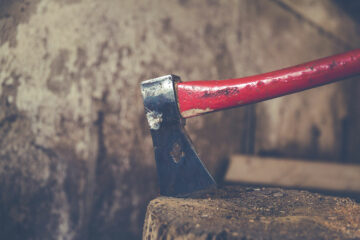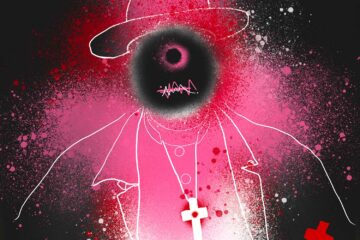Overview: In this short solo episode (ep 142), Adam Williams considers the phrase “life practice” and why it’s not more widely used in society. He considers how honoring the process of practicing at life creates space for learning, compassion and evolution. (Released on podcast on Mar. 15, 2023)
Also on Apple, Spotify, Pandora, Stitcher, YouTube, Google and other players.
EP 142 SHOW NOTES, LINKS & TRANSCRIPT
Connect with Adam Williams
Humanitou on Instagram: @humanitou
About Adam
Artwork
Podcast cover art and art below: Adam Williams
Music
“Old Rope” by Joe Johnson | joejohnsonsings.com
Original Written Version
I refer to life practices and creative practices often in my writings here and on the Humanitou podcast. Well, and everywhere else, too.
Then this afternoon, I started to wonder how many of us use that vocabulary. I don’t think it’s everyone, and I don’t know that it’s most of us.
So as I do, I then wondered, “Why not?”
Many of us grew up playing sports or musical instruments at school, or somewhere. We became used to the word “practice” and its implied reason and meaning, “to get better at ______ .”
We say doctors have a practice, and that lawyers practice. In both cases, we sure hope they already know what they’re doing, don’t we? Yet for most of us, that’s the beginning and end of the word “practice” in the general vocabulary.
Right? Am I missing an obvious use? Mechanics, school teachers, business executives? No, no and no. Corporate executives, police officers and politicians? No, no and yeah right.
None of them know with total confidence and accuracy what they’re doing any more than doctors or lawyers, right? As I’ve candidly said here before, I don’t know what I’m doing, but no one else has the answers either. Mostly, we’re just trying to do our best.
Why do we wear masks and pretend when we all ought to just ’fess up to needing practice? Always and forever.
I wonder when/where/why/how the perspective of life as a practice fell off (or never took mass-appeal hold) in our shared vocabulary? And more importantly, why hasn’t it taken hold as a more spacious and gracious shared way of living? Damn the poor egos.
As I’ve mentioned before, I teach my sons that people live by their habits. Good ones and bad ones. So we’d better be thoughtfully choosing what habits we want our lives to consist of, I tell them.
But I suspect that one’s awareness of life as practice, or habits, is tied to one’s understanding of life more broadly. “World view.” I don’t know why we say it that way. It seems like we really mean something more like, “life view.” But, anyway …
In a recent conversation I had with the artist and author Jonathon Stalls for the We Are Chaffee: Looking Upstream podcast, we talked about life always being in-process, being lived in the gray, rather than being a binary black-and-white, rigid experience.

“We Sow What We Practice” by Adam Williams
For someone who can only see the black and white of life, who only feels comfortable with their perceptions of certainty and absolutes, the gray is frightening. It’s too soft and malleable, and understanding the “rules” of life in the gray is elusive.
Life in the gray is freedom. And though this country I live in claims to be all about freedom, it terrifies most humans to be, or especially allow others to be, truly free.
Fundamentalist thinking fits into that fearful space. The rules of schools, religions, work places and societal laws define boundaries. And they set up a false perception of what’s right and real, “the way things ought to be.”
I suspect that through that lens, the concept of practicing life, of setting aside one’s ego and job title and societal status markers, and reaching into places unknown, exploring one’s vague inner terrain, and growing, evolving and emerging as something bold and colorful is unthinkable.
I wonder, what happens to a butterfly that doesn’t emerge from its cocoon? (Death. Death is what happens.)
Life and its practices involve constant change. “Change is scary,” they say.
That same they also claims only two things are certain: death and taxes. I say, no, change is the one certain thing. People avoid paying taxes and instead pay lawyers to help them get away with it. And the certainty of death depends on one’s perspective, and one’s spiritual beliefs.
Change, that’s the truest constant. I’ve yet to figure out how any of us can evade that. Lawyers can’t help us through loopholes. Churches can’t pray it away. It surrounds us. It is us. And for many, that truth is too true to bear.
Choosing to engage in our life practices then seems like an empowering acknowledgement of that truth. They are the tools we use to not only accept the certainty of change in our lives, but to embrace it, get comfortable with it, and play an active role in shaping it.
If we understood the purpose of practicing the piano when we were young, or riding a bike, or whatever it was, why do we struggle with understanding the need to do better with so much bigger responsibilities as adults?
Then again, maybe it really just falls back to the simple truth I teach my sons: Our lives consist of the habits we keep, good and bad. Choose your path.
If my habit is to cultivate fear, ignorance and othering in myself, in my children and in my community … or … If my habit is to cultivate empathy, compassion, love, critical thinking, curiosity, and mental and emotional wellbeing for myself, my children and my community …
We reap what we sow practice.


